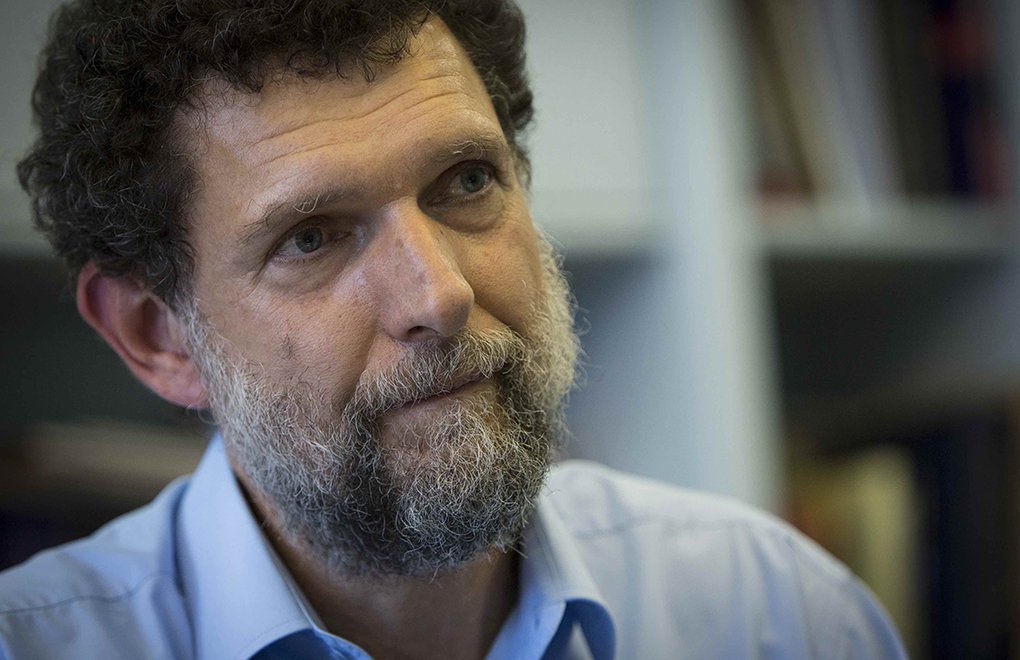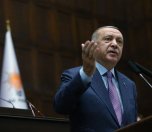Click to read the article in Turkish
The Ministry of Justice has expressed an opinion about the continued arrested of businessperson and rights defender Osman Kavala.
In the opinion dated August 20 and prepared by Hacı Ali Açıkgül, the Human Rights Chamber Chair of the Ministry, it has been alleged that no rights of Kavala have been violated and indicated that there are strong indicators suggesting that he committed the crime of "espionage."
Explaining the reasons for three separate rulings of arrest given for Kavala, the Ministry has noted that the ruling of "immediate release" given by the European Court of Human Rights (ECtHR) and the ruling based on which Kavala is currently behind bars are different from each other.
The Justice Ministry has stated the following about the issue:
"The charge (espionage) for which the current ruling of arrest has been handed down against the applicant and the evidence suggesting the committal of this crime and the crimes and evidence based on which a ruling of arrest was given for the applicant on November 1, 2017 and which were the matters in dispute in the European Court of Human Rights (ECtHR) ruling dated December 10, 2019 are different from one another.
"Therefore, the current state of arrest of the applicant is not related to the offense for which he was previously arrested and this state has started with the ruling of arrest given on March 9, 2020 on another offense charged depending on new evidence that has been obtained in the meantime."
The Ministry has also said that the arrest of Kavala for "coup attempt" in the Gezi Trial has ended, arguing that he is now arrested for "obtaining information that needs to remain confidential for the security of state or foreign political interests for purposes of political or military espionage."
Non-existing HTS records cited as evidence
In its opinion presented to the Constitutional Court, the Ministry of Justice has also referred to the phone conversations between Osman Kavala and Henri Barkey, which do not exist in the Historical Traffic Search (HTS) records, as criminal evidence. Addressing the supreme court regarding the application it will finalize, the Ministry has said,
"Our Ministry is of the opinion that a ruling of inadmissibility shall be handed down considering that the application is openly groundless."
In its opinion, the Ministry has also made the following commentary:
"In a democratic state where the rule of law prevails, the fact that a person was released after being arrested on the charged offense or even he or she was acquitted of the charge in question does not prevent this person from being investigated on other charges that he or she allegedly committed.
"Thus, the necessary measures in the investigation process are taken by courts in accordance with the principles of legality, legitimate purpose and proportionality. Our Ministry presents it to the attention of the Constitutional Court that all measures taken within this scope are subject to objections before independent and impartial courts within the principle of rule of law."
'His arrest has not exceeded reasonable time'
The Ministry of Justice has also requested that the allegation that the arrest of Osman Kavala has exceeded reasonable time be found inadmissible by the Constitutional Court. The Ministry has indicated that it has been five months since the last ruling of arrest was given for Kavala.
Arguing that arrest is a proportional measure, the Ministry has said that Kavala's continued arrest is legal. It has further indicated that "no period has been detected where the prosecutor's office failed to act during the investigation just as no negligence has been detected in that regard."
What happened?
Businessperson Osman Kavala, who was on his way back from Antep, was taken into custody at İstanbul Atatürk Airport on October 18, 2017.
On November 1, 2017, it was announced that Kavala was arrested on charges of "attempting to change the Constitutional order and to overthrow the government." In the official document referring him to court with a request of arrest, it was alleged that he was the head and financier of Gezi.
The sixth and final hearing of the lawsuit filed into Gezi resistance was held at the İstanbul 30th Heavy Penal Court in Silivri on February 18, 2020.
Announcing its ruling after the statements of defendants and their attorneys, the court board has ruled that Osman Kavala, Mücella Yapıcı, Can Atalay, Tayfun Kahraman, Ali Hakan Altınay, Yiğit Aksakoğlu, Yiğit Ali Ekmekçi, Çiğdem Mater Utku and Mine Özerden shall be acquitted as "there was no concrete and material evidence as to the committal of the offenses charged." The court has also ruled that businessperson and rights defender Osman Kavala, the only arrested defendant of the case, shall be released.
Osman Kavala was the only arrested defendant in 16-defendant Gezi Trial, which started on June 24, 2019. Having been acquitted in this trial, Kavala was arrested again, this time on charge of "political or military espionage." Kavala is still held in Silivri Prison in İstanbul.
Announcing its ruling on Kavala on December 10, 2019, the ECtHR concluded that his rights were violated by his imprisonment.
The ECtHR concluded that the European Convention on Human Rights was violated on the grounds that Kavala was arrested without any reasonable suspicion and with political motives and that the Constitutional Court did not examine his application within a reasonable period of time.
This ruling became final on May 12, 2020. While this ruling has not yet been put into effect, the Committee of Ministers of the Council of Europe made a call to Turkey about the final ruling of the ECtHR and urged Turkey to implement the ECtHR's ruling of right violation and to release him. (HA/SD)







-132.jpg)






-132.jpg)